author of Honorable Influence - founder of Mindful Marketing
Those familiar with OnlyFans were surprised to learn that the London-based online subscription service known for risqué content had suddenly decided to ban sexually-explicit videos. The move, which seemed analogous to Budweiser abandoning alcohol, made me wonder whether the purveyor of virtual vice suddenly had a moral epiphany that left it feeling convicted and compelled to reform its ways.
However, my online search for an ethical impetus behind the pornography ban came up empty. It appeared that the main motivation came down to processing payments and keeping credit lines open, since some of OnlyFans’ banks had become increasing uncomfortable with transactions tied to the sex industry.
On one level, OnlyFans did act on a moral imperative, but it wasn’t a strategy it selected willingly; rather it was behavior compelled by others and tied squarely to revenue retention.
The idea that there had been no real ethical enlightenment became all-the-more apparent when, within a matter of a few days, the company reversed its stance and lifted the pornography ban.
Any of us can change our minds on ethical issues (I sometimes do), but for an individual or organization to go from “this is so right,” to “this is so wrong,” to “this is so right,” within a matter of days, defies most moral compasses.
So, whether or not we agree with OnlyFans’ recent choices, it’s hard to lend the company moral capital for any of them. Instead, we’re back to the most basic business ethics question: Is OnlyFans’ business model a moral one, i.e., Is it right to sell sex?
Of course, selling sex has been happening for millennia, which is why prostitution is known as “the oldest profession.” Also, throughout that time a very wide variety of sexual expression has been sold, from actual physical intercourse to subtle innuendo in advertising.
Over so much time and across so many different cultures, there’s bound to be differences of opinion about what constitutes appropriate sexual expression and how, if ever, if should be commercialized. My convictions, which stem from a Christian worldview, provide guiding principles that admittedly are filtered through my interpretation. I respect others’ distinct judgments and bases for beliefs because I don’t have it all figured out.
Still, there are four arguments I often hear in favor of commercializing sex that are hard for me to appreciate for reasons I’ll explain:
1) Diversity and Inclusion: In a tweet describing the reversal of its pornography ban, OnlyFans said:
“Thank you to everyone for making their voices heard. We have secured assurances necessary to support our diverse community [emphasis added] and have suspended the planned October 1 policy change. OnlyFans stands for inclusion [emphasis added] and we continue to provide a home for all creators.
OnlyFans’ announcement reminds me of Frank Sinatra famously singing, “I did it may way,” as well as of many young people today saying, “You have to do you.” All three sentiments suggest that what’s good is purely a personal decision, or what feels right for that individual.
Individuality is good in many ways, but personal diversity related to what a person does (i.e., their actions, behaviors) is different than who a person is (e.g., their race and gender). Unfortunately, OnlyFans conflates the two. People always deserve respect for who they are, but personal preference for what to do shouldn’t serve as the metric for what’s ethical.
2) Free speech: Reading and listening to interviews about the OnlyFans news, I heard several sex workers appeal to free speech, suggesting that what they sell is protected by freedom of expression. In terms of U.S. constitutional law, it is true that not only words but actions, specifically symbolic ones, fall under the umbrella of free speech.
However, free speech doesn’t give the right “To make or distribute obscene materials” (Roth v. United States, 354 U.S. 476; 1957). Granted, this prohibition is a legal one, not necessarily a moral one; still, it’s informative that those interpreting such important constitutional matters felt that free speech does not mean the right to say or do absolutely anything and that illicit expression is particularly deserving of censure.
3) Free Market System: The interplay of supply and demand is effective for bringing about marketing efficiencies, but some seem to believe that if there are two consenting parties—a willing buyer and a willing seller—any exchange between them is inherently ethical. Countering that notion is the moral axiom, “Just because you can, doesn’t mean you should.”
In the vast majority of cases, sellers and buyer do self-regulate ethically; yet, there are plenty of instances in which parties to an exchange rationalize activities that most others say is wrong, e.g., murder for hire, distribution of illegal drugs, human trafficking, etc. So, claiming that selling sex is okay because two collaborators want it does not hold much ethical weight.
4) Jobs: One of the greatest privileges a person can have is to do meaningful work. Good jobs are important for individuals’ economic and emotional well-being, as well as for society as a whole. However, in keeping with the previous point, not every job is a good job.
Some people make significant money and may even enjoy being arms dealers or animal poachers, but employment is not an absolute good. What people do for pay matters. A job that’s harmful to them or to others is not a worthwhile job.
It’s nice that sex workers can pay their bills, but there’s little or no redeeming value that sex workers can claim , i.e., “Here’s how we’re helping others and making this world a better place.” If anything, sex work precipitates very adverse impacts, e.g., addiction, objectification, psychological scaring, and broken relationships.
Job security is one of life’s most motivating forces. Many people will do almost anything to rationalize and retain their income stream, which evokes this article’s original question: Is there anything you wouldn’t do for money?
Growing up and working in our family’s promotional products company, I clearly remember my father pulling aside calendar manufacturers’ catalogs that contained sexually explicit pictures and completely covering those pages with large decals so what was under them couldn’t be seen by our salespeople, our customers, or anyone else.
We could have done well financially marketing those lewd calendars to companies that wanted to buy them; however, my dad decided that offering them was not the right thing to do. Selling sex was something he wouldn’t do for money.
Although it may be economically advantageous, it’s morally unfortunate that people today can easily make money selling sex. Hopefully, OnlyFans will at some point reconsider its largely illicit business model. In the meantime, the company continues to be a purveyor of “Single-Minded Marketing.”
Learn more about the Mindful Matrix.
Check out Mindful Marketing Ads and Vote your Mind!

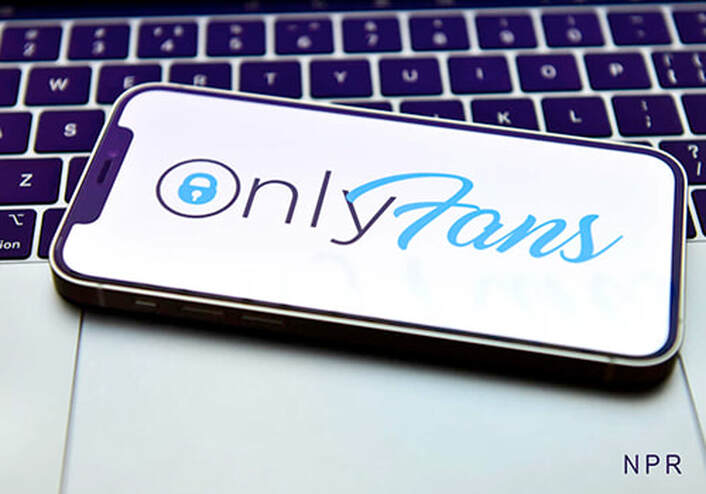
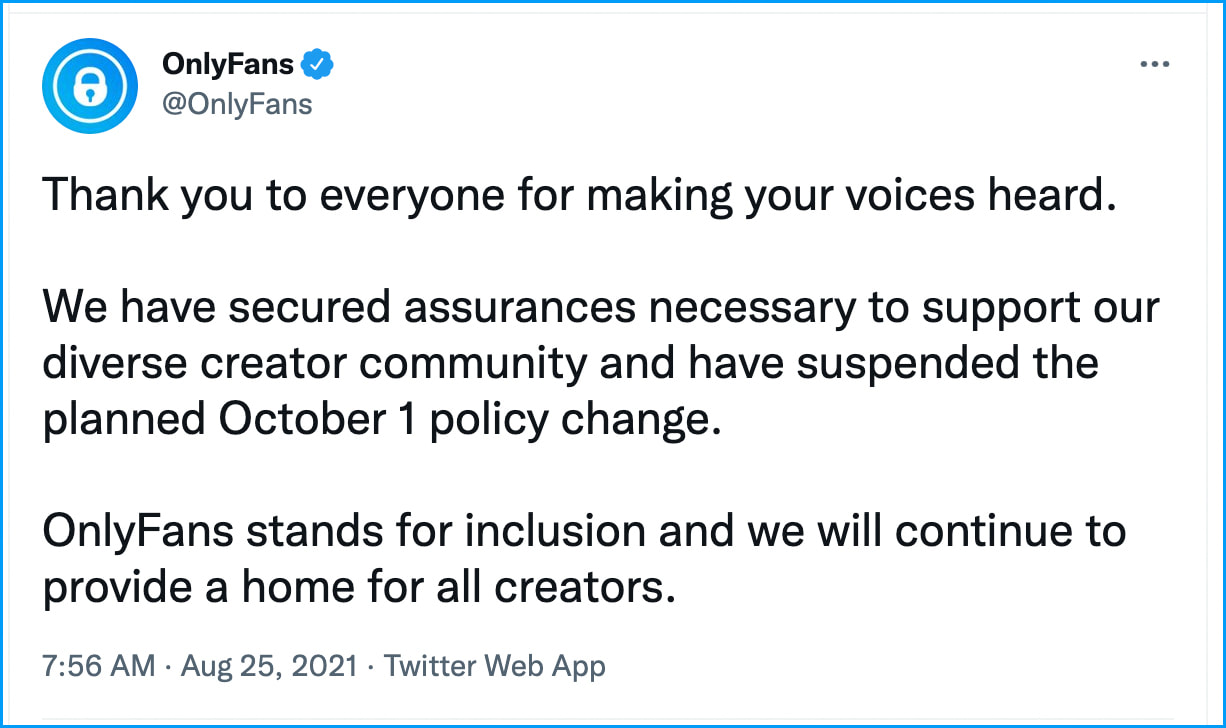
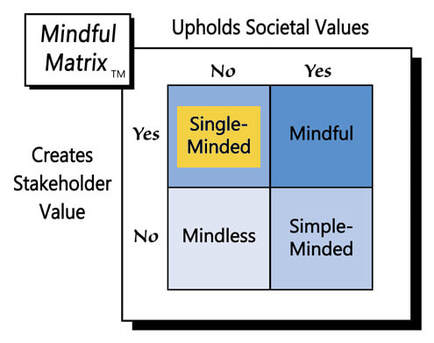
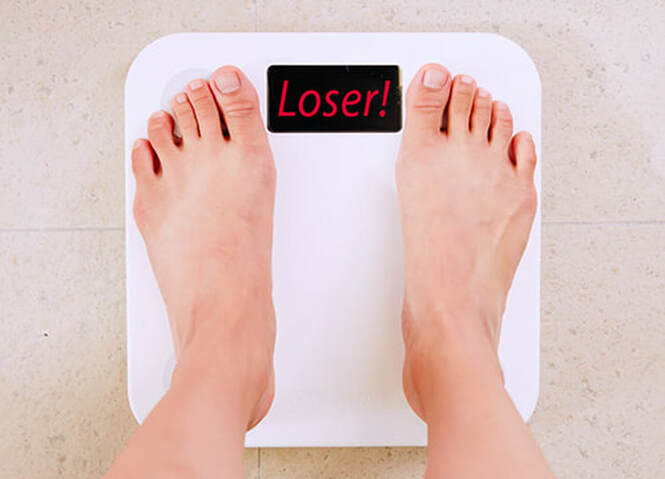
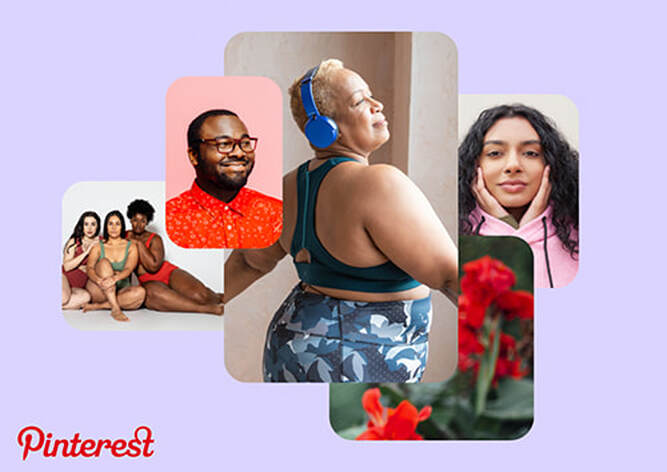
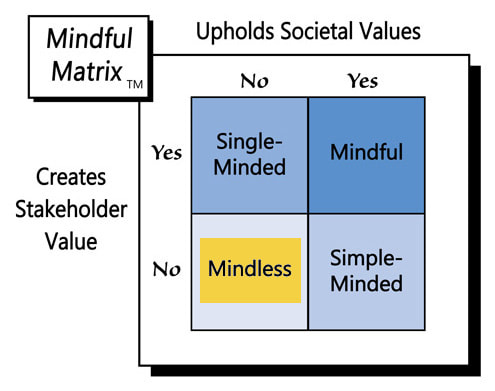
 RSS Feed
RSS Feed